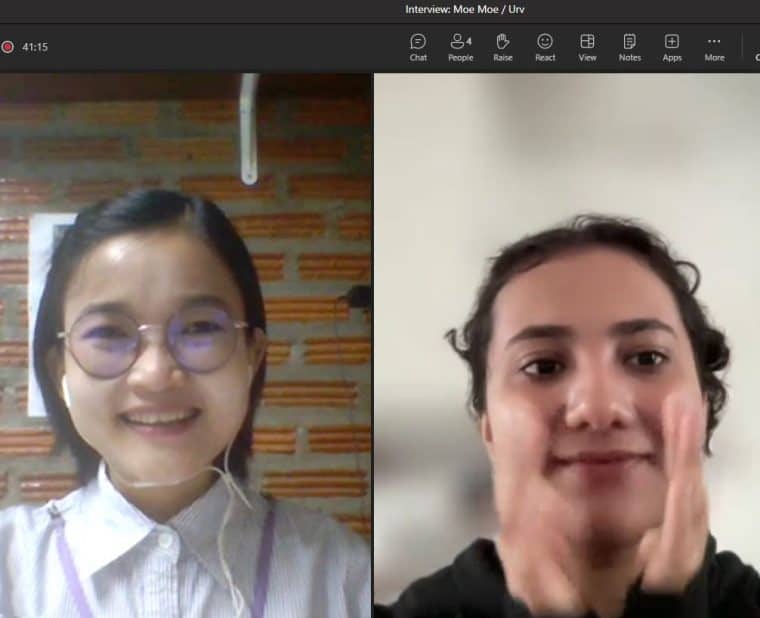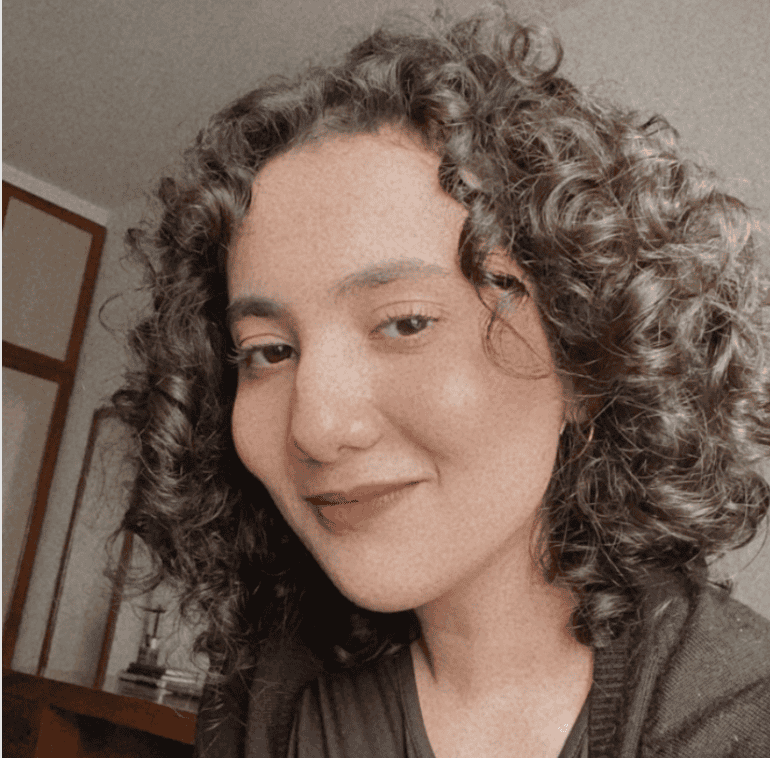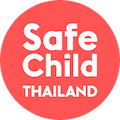For today’s blog we have something different, I interviewed one of our vital members on the ground and sat down with our programme coordinator and all-round wizard who is our key person in Thailand—Moe Moe. As I sat down waiting for my teams application to load, I felt excited—I’d had the pleasure of meeting Moe Moe at a Safe Child Thailand event a few months ago, and she was both bold and determined but also one of the kindest souls you’d meet. As our meeting started and we exchanged smiles and greetings, I was met with her familiar warmth and openness—always a refreshing quality. Our first topic of conversation was her impressive story, the powerful memory of which stays with me for when I first heard it a few weeks ago at a Safe Child Thailand event. Moe Moe had been a child who lived at a boarding home and lived with a foster family, After leaving the system, she returned to her biological family. Her purpose in going back was to apply for a passport, which she needed to pursue university education. She took her GED classes and studied abroad, in Bangladesh, for 5 years after which she began working with Safe Child Thailand. Her inspiration for her work comes from her own past but also of what she saw around her.

She has been with us for the last 7 years, and her responsibilities in the field have only grown. When I asked her how she would describe her job, she let out a soft chuckle and said that it wouldn’t be easy, since she does a bit of everything. A typical day in her life consists of working with the multitude of partners we have in Thailand, along with the founders and monitoring the funding—she follows through with checks on the student homes, as well as liaising with Katie (our Senior Partnerships and Development Officer) in order to coordinate with our London office. She described her days as being a camera for the team in London so they can grasp the ground reality better, and this has helped immensely in designing our programmes and direct implementation. She spoke with a great deal of passion about increasing visibility for the charity in the region, though we have existed in the region for 41 years she finds that visibility still remains an issue. As such, a crucial part of her job, she is often at events and conferences and involving other large players within the NGO and INGO world.
Whilst working in the field, she has encountered her fair share of challenges. In terms of her work, her favourite part of her job is that she gets to help young people—to give them guidance, opportunities, education and support but she does find that every problem cannot be responded to, as is the case with most organisational work. Another prevalent challenge she faces is being a Burmese woman—though she has spent, and continues to spend, a considerable amount of her life living in Thailand and speaking Thai to the best of her abilities. For her being a young woman in a culture where being, both, a woman and being young garners stigma and is taxing. She smiled slightly and with a sigh of disappointment spoke of the older generations that don’t take her seriously in the field due to her being a young woman and that is, yet another fight she fights and will fight. In addition to this, her being a woman in a position of power and influence is fairly intimidating to the plethora of men she works with who try to patronize her by calling her “daughter”, as is common in many Asian countries to use endearing terms for young girls but this has a deeper layer where these women and girls lack autonomy, and their voices are taken away. Moe Moe, with her well-earned confidence, makes sure that those around her are aware that she will not be quiet and take it, she demands respect for both her role in the organisation as well as her opinions and knowledge surrounding the work she does.
She recounted fondly a conference to which she was not invited, though all the major NGOs in the region were, so she did the most Moe Moe-esque thing and showed up anyway. We chatted more about the various people she had met throughout her career, and she recounted a conference in which Myanmar’s law regarding birth rights was being discussed—a law she disagreed with as it led to the exclusion of women from becoming president if they were married to a non-Burmese man, Moe Moe asked a poignant question regarding the unfairness of the law. One of the attendees, who was giving this talk on a policy forum, from a large INGO dismissed her point entirely by saying that it does not matter—portraying how much work was still to be done at the policy level, especially by those who work in these contexts without knowing anything about them. Naturally we moved onto discussing feminism as a concept within the country and the region. She pointed out that, like most of Asia, it was not a strong topic of discussion as compared to the West but there were seeds being sown, and that was still progress.
Moe Moe’s favourite part about her job is helping young people, being able to make a difference in there lives, to be there for them, to make them feel understood, to make them understand that there was someone there for them—that someone cared. I asked her how she coped with the emotional burden of her job, and she very conscientiously talked about the different hurdles that the migrant people from Myanmar faced like language barriers, nationality differences and having a sense of statelessness since the Thai government does not actually recognise them as being refugees. The way she copes with the emotional burden of her job is to understand that what she does is important and bigger than her, she moves past it by treating everyone she comes across with kindness, as she likened it to a book that she reads, with every individual being an author trying to get across a unique story to her. And she cherishes these stories. One such story she recounted was of a migrant family with a child who had a disability, due to this the family would set aside whatever meat they could afford for him, the entire family omitted eating meat due to their poor circumstances and hoped that this sacrifice would help the child to grow properly. With great emotion, she mentioned how this story had stuck with her for years and how it fuelled her greatly to do her job, to help as many people as she could.
As our conversation came to a close, we discussed some of the things she was looking forward to—the plethora of projects coming up in the region along with a closer working relationship with the London office along with our CEO Peter (who is a wonderful leader!), she joked about COVID-19 and remote working stating that this had always been the norm for her and now everyone had a taste of it. She concluded with the same warm smile with which we began, as she rushed off to her next meeting. And I was sat there looking over my notes, appreciative of this opportunity to interview someone as wonderful and authentic as Moe Moe had been.

Author’s bio:
As a masters student nearing the end of my degree, one of the most important and meaningful things I did during my year, was being a part of the English Conversation Mentor Programme. Now working as a Youth Ambassador, I am thrilled to continue my journey with Safe Child Thailand on this project that aims to reflect on the work we do, along with a focus on the ground reality and stories that shed light on the children and staff that are at the centre of this organisation.

